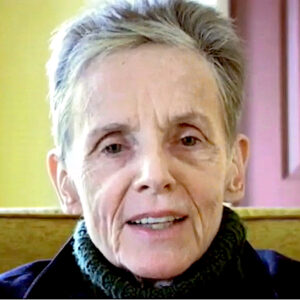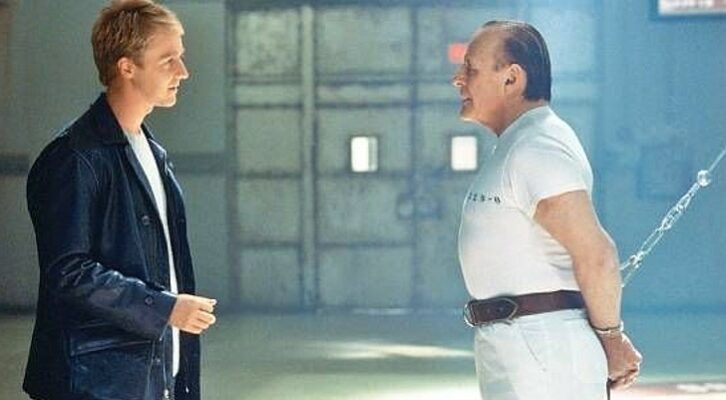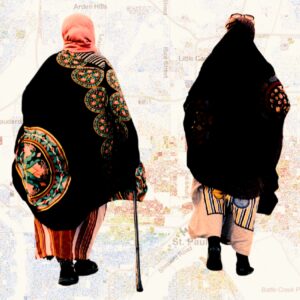
Bad Jobs in Literature:
A Reading List
Five Novels About Some Shitty Ways to Make a Living
I spent four years working in a correctional facility, where the job was not only difficult while I was punched-in, but weighed on me when I punched-out. Some days—most, actually—were mirrors of the day before. Sometimes I had the exact conversations with co-workers. Muster notes were verbatim, I would trace over yesterday’s words. The walls were always bare, paint chipped in the same spots, torn books piled in the same corner of the handicap shower; I served bagged lunches of sweaty bologna sandwiches and rotten apples, too-warm milk, every day at 1100 hours. Inmates in orange jumpsuits passed my officer station, nodded; they were cordial and asked about my day. “Same as yesterday,” I’d say. And they’d begrudgingly agree. Sometimes, I hoped for sudden violence or a personal threat to animate my day. That boredom of sameness can be worse than a shitstorm of a shift.
Now, a decade later, it’s the very violence I thought would animate my monotonous days that sneak up on me when I cross the street walking my dog, or perusing the grocery store—the hangings; the hygiene products I didn’t think could pierce flesh; man throws himself off the second tier; a woman, eight months pregnant, begs to keep her baby with her; a phantom burn of pepper spray in my throat from the dozens of times we cone a cell due to an inmate’s agreeable non-compliance; the way 96 people’s shit can smell exactly the same.
Jobs—most of them—aren’t easy. I wrote down how many jobs I’ve had since my first one at sixteen, picking corn at dawn and working the day at a roadside stand: 13. Too many to name, but none that I can remember not being excited about landing. But working is necessary. The following five novels explore what it is like to work difficult jobs and how those jobs shape the characters’ lives therein.
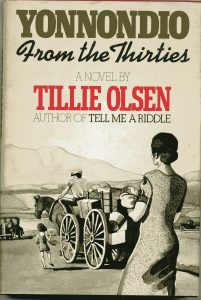
Tillie Olsen, Yonnondio: From the Thirties
This unfinished novel, titled after Walt Whitman’s poem “Yonnondio,” follows the Holbrook family struggling to survive the Great Depression. The story is mostly told by their oldest daughter, Mazie, who her oft overworked and drunken father calls “Big Eyes.” Due to her own physical abuse by the hands of both her parents, the street violence, the moving from place to place, her awareness of her ragged clothes and dirty face, her motherlike duties at only six-years-old, Mazie narrates in a dream-like manner. The Holbrook patriarch, Jim, works low-paying jobs in the most heinous of places: coal mines, a failed farm, sewers, slaughterhouses. Though the heart of the novel is Mazie’s narrative, Anna, her mother, bears the brunt of the difficult life. The hardest job of all is keeping the family together and alive, food on the table before poppa comes home in a drunken rage. Olsen’s portrayal of the towns and jobs leaves a sour taste like puke in your mouth. But there is much beauty in Olsen’s language, which gives the book, and difficult work, unexpected grace: “How good the weariness—in the tiredness, the body may dream.”
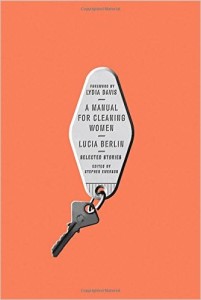
Lucia Berlin, A Manual for Cleaning Women
Berlin has come into literary acclaim only recently, though she did win an American Book award publishing in small presses. In these selected stories, we follow women who work in a variety of difficult jobs: cleaning women, a Spanish teacher at a former mission, doctor’s office secretaries, a hospital ward clerk. Her cleaning women steal, know everything about their clients. The secretaries fall in love with the doctors who treat them poorly. Students and nuns mistreat the teachers. Her characters are hardened and resilient. The stories not about work follow chemo treatments, stays in hospitals, rides to jail. This book provides a glimpse into a major talent’s body of work when she, and her characters, were being overlooked.

Will Macken, Bring out the Dog
This debut of linked stories follows Navy Seals which, in a cluttered genre as-of-late, stands on its own. In “Rib Night,” there’s a fight over chocolate milk in the mess hall. In “Kattekoppen,” the men in the unit have jobs like “howitzer liaison” and “rotator.” Their jobs are to kill, or order killing. The way these stories move treat the reader as part of the unit: night vision treks towards villages, goats and wild dogs, mountains in the distance. There’s dust and pink snow. Their job—killing—is at first fun. But the war wanes on. And in “Crossing the River No Name,” the men come to this harsh, familiar realization about work: it won’t always be fun.
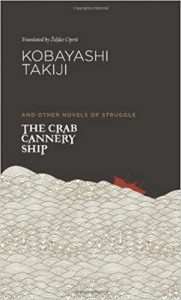
Takiji Kobayashi, The Crab Cannery Ship
This 1929 short novel explores the experiences of oppressed people working on a Japanese crab cannery ship. The crew is made up of fishermen-farmers who can’t feed their families working the fields, prostitutes, teenage boys and their mothers residing in the bottom of the ship, a relentless captain. The ship’s manager explains that the work is not only profitable for the company, but also benefits the empire. The conditions are poor; workers constantly check their empty pockets, vomit from seasickness, the boy’s eyes puss. The Sea of Okhotsk is cold and stormy. The workers warm up, wet in their iron bunks, with whiskey. And afterwards, fill their bellies with rotten fish. Months at sea without women, the older fishermen begin raping the young boys. Overworked and sick, the men decide to strike and take over the ship. Though this book is harsh, it is an important proletarian novel, that, during the global financial crisis of 2008, for obvious reasons became a best-seller in Japan.
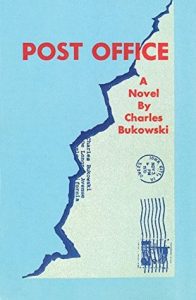
Charles Bukowski, Post Office
If there’s ever a book that details the dreadful monotony of patterned work, it is Bukowski’s debut novel, Post Office. Henry Chinaski, Bukowski’s go-to alter ego, works as carrier, quits, drinks for a bit, gambles the ponies for a living, and then returns as a clerk. This novel explores the soullessness of meaningless work, terrible bosses, and, of course, drinking. Though this novel is considered part of the beat generation, it isn’t. And don’t come looking for beautiful prose. Come looking if, say, you hate your job, and listening to you co-coworkers let off steam over a few cold ones isn’t enjoyable, you can let Bukowski—I mean Chinaski—express occupational hate to you.
_____________________________
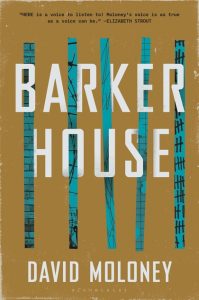
David Moloney’s novel Barker House is out now from Bloomsbury.
David Moloney
David Moloney worked in the Hillsborough County Department of Corrections, New Hampshire, from 2007 to 2011. He received a BA in English and creative writing from the University of Massachusetts Lowell, where he now teaches. He lives north of Boston with his family. His novel Barker House is out now from Bloomsbury.









